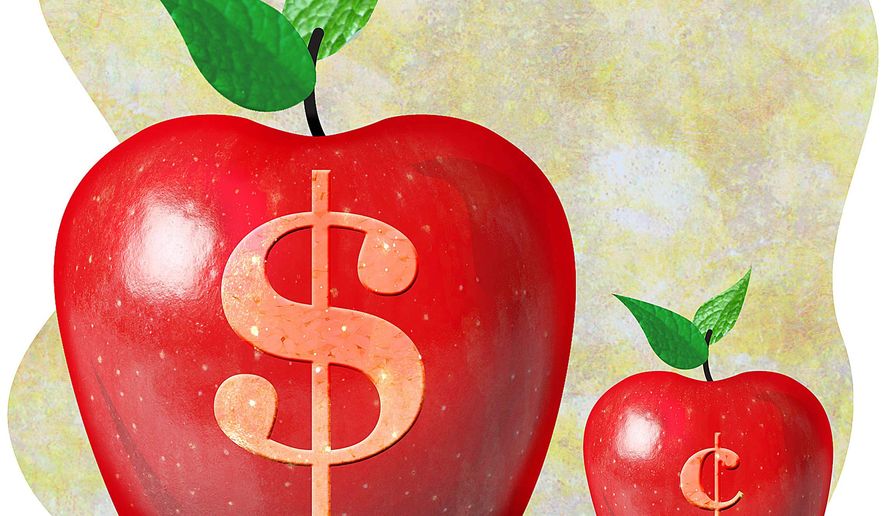OPINION:
As Washington gets ready to select a new mayor, D.C. voters should insist that to get their vote, a candidate should pledge to provide all students in the District equitable treatment when it comes to school funding — a moral and legal requirement the current and previous mayors have ignored.
The sad reality is that the D.C. government has been underfunding charter schools for years, and now parents of charter school students are suing to force the D.C. government to provide these students the funding they are supposedly guaranteed by law.
D.C. law states that every public school student in the District should be equally funded according to a specific funding formula, but the city government simply ignored this requirement by underfunding charter schools. Each year, D.C. charter schools get between $1,600 and $2,600 per student less than traditional schools. As a result, over the course of eight years, D.C. charter school students have missed out on more than $770 million in funding.
This happens in a number of ways. For instance, the D.C. government pays public charter schools for the students they actually enroll — as shown by a government audit — but they pay traditional D.C. public schools on the basis of the number of students the government estimates will attend. It continuously overestimates the number. When the D.C. government pays for these phantom students, there’s less money available for real kids.
Public charter school students also get shortchanged because D.C. government agencies provide tens of millions of dollars in free services to regular public schools, while charter schools have to pay for these services out of their own, usually insufficient, budgets. To make matters worse, the D.C. government makes up the deficit for D.C. Public Schools when it overspends its budget, while charter schools that spend more than budgeted are on their own.
This intentional or unconscious institutional hostility to charter school and those who attend them affects the 45 percent of D.C. students who attend such schools, 74 percent of whom are black. By underfunding them, the D.C. government is not only breaking its own laws, but penalizing often excellent schools to subsidize schools that aren’t doing nearly as well. Students attending the city’s charter schools consistently outperform their traditional public school peers on standardized tests. Underfunding has been allowed to go on for too long, even though charter school students are more likely to come from low-income families.
It would be one thing if these schools weren’t performing. Students who attend and graduate from the city’s charter schools have an on-time graduation rate fully 21 percent higher than the average for D.C. public schools, which means more of their students have a shot at a college education.
East of the Anacostia River, where poverty, unemployment and crime are highest, charter schools have had their biggest impact. Charter students outscore their public school counterparts in reading and math by 18 percentage points in one ward and 28 points in the other.
Imagine how much more charter schools could do for D.C. students if they had the resources they should.
The charter schools who have filed the lawsuit aren’t asking the D.C. government to make up for past underfunding, but simply to provide equal funding in the future — as the law requires. This isn’t a question of pitting the financial interests of charter schools against the financial interests of traditional schools. This is about making sure that a student benefits from the same amount of funding whether he or she attends a traditional public school or a public charter school. That’s simple fairness.
The success of D.C.’s charter schools has had positive spillover effects for the rest of the city’s schools. Under the leadership of two reforming school chancellors, Michelle Rhee and Kaya Henderson, and with the example of the reforms implemented by charter schools, student test scores and graduation rates have risen across the board. This is an educational renaissance that D.C. students, parents and teachers can be proud of.
The law in the nation’s capital is clear, and the District’s charter school have proven their value. The court case filed by the D.C. charter school community exposes the inequality in funding that D.C. officials have allowed to continue for too long. This year’s candidates for mayor should be required to insist that all our children, especially those from the most disadvantaged backgrounds, get equal education funding, regardless of which public school they attend.
Nina Rees is president and CEO of the National Alliance for Public Charter Schools.




Please read our comment policy before commenting.